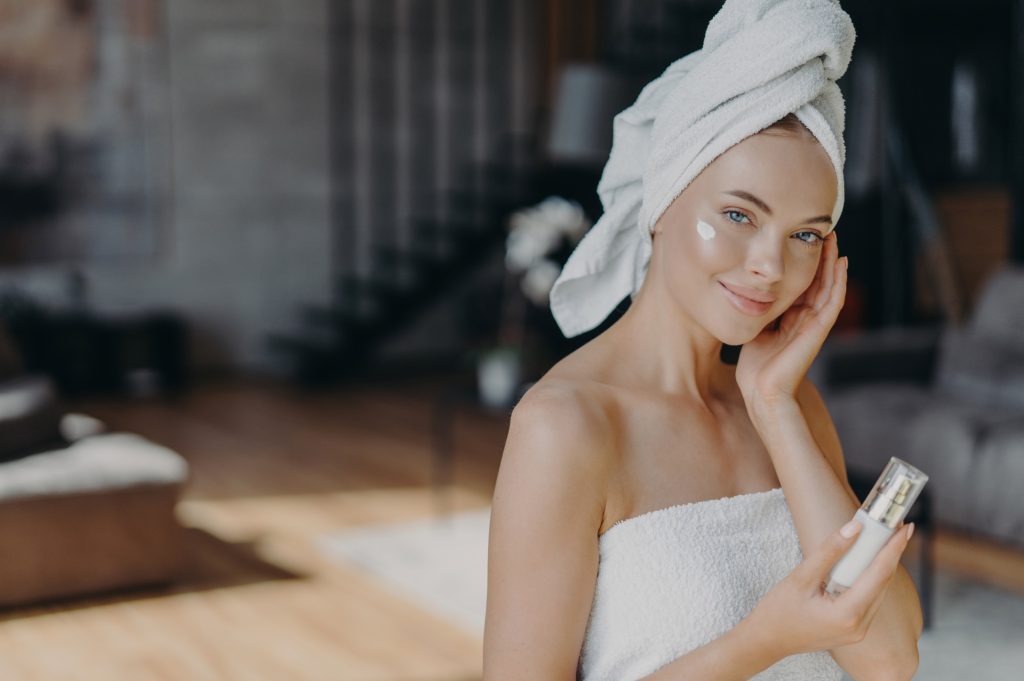One of the most well-known benefits of cold plunging is its ability to improve circulation. Cold water causes blood vessels to constrict, and as the body warms up, blood vessels dilate. This process, known as vasoconstriction and vasodilation, improves blood flow and oxygenation to the skin. This can lead to a healthier-looking complexion, as well as an improvement in the healing of skin conditions such as eczema and psoriasis. Studies have shown that cold water immersion can also lead to an increase in endorphins, the body’s natural pain-relieving hormones, which can help to reduce the symptoms of certain skin conditions.
Cold plunging also has anti-inflammatory effects on the skin. Cold water can reduce the activity of pro-inflammatory cells in the body, leading to a decrease in inflammation and redness. This can help to reduce the appearance of acne and other skin conditions. The anti-inflammatory properties of cold water are thought to be due to its ability to reduce the production of pro-inflammatory cytokines and increase the production of anti-inflammatory cytokines.
Another benefit of cold plunging is its ability to improve the skin’s natural barrier function. The skin’s barrier function is responsible for protecting the body from external irritants and maintaining hydration levels. Cold water can help to strengthen the skin’s barrier function by tightening the pores, which can help to reduce the appearance of fine lines and wrinkles. Cold water can also help to increase the production of ceramides, which are essential for maintaining the skin’s barrier function.
In addition to these benefits, cold plunging can also have a positive impact on the overall health of the skin. Cold water can help to increase collagen production, which is essential for maintaining the skin’s elasticity and firmness. It can also help to reduce the appearance of age spots and other signs of aging. Cold water immersion can also lead to an increase in the production of human growth hormone (HGH), which is known to have anti-aging effects on the skin.
To maximize the benefits of cold plunging on skin health, it is recommended to take a cold shower or plunge into cold water for at least two minutes, several times a week. It is also important to note that cold plunging should be avoided by individuals with certain medical conditions such as Raynaud’s disease or cold allergy.
Incorporating cold plunging into your skincare routine can also be beneficial. Cold water can be used to rinse the face after cleansing to help tighten the pores and refresh the skin. Cold water can also be applied to the skin using a cloth or ice pack to help reduce inflammation and redness.
It’s important to note that cold plunging should not replace any medical treatments prescribed by a dermatologist. However, it can be used as an adjunct therapy to enhance the effectiveness of these treatments.
In conclusion, cold plunging is a simple and effective way to improve skin health. Its ability to improve circulation, reduce inflammation, strengthen the skin’s barrier function, increase collagen production and human growth hormone production can lead to a healthier-looking complexion and an improvement in the healing of skin conditions. Incorporating cold plunging into your skincare routine is a powerful way to achieve and maintain healthy, youthful-looking skin. However, it is always good to consult with your doctor before making any changes to your skincare routine.
It’s important to note that while cold plunging can have a variety of benefits for skin health, it is not a substitute for proper skincare and healthy lifestyle habits. A healthy diet, regular exercise, and the use of appropriate skincare products are all essential for maintaining healthy, youthful-looking skin.
It is also important to protect your skin from sun damage. The sun’s UV rays can cause damage to the skin, leading to age spots, wrinkles, and an increased risk of skin cancer. It is important to use a sunscreen with at least SPF 30 and to reapply it every 2 hours when spending time outdoors. Wearing protective clothing and seeking shade during peak sun hours can also help to protect your skin.
In addition to cold plunging, there are other natural ways to improve skin health. Some studies have shown that the use of natural ingredients such as aloe vera, turmeric, and green tea can have a positive impact on skin health. These ingredients have anti-inflammatory and antioxidant properties that can help to reduce the appearance of fine lines and wrinkles and improve the overall health of the skin.
In conclusion, cold plunging is a powerful tool for improving skin health. Its ability to improve circulation, reduce inflammation, and strengthen the skin’s barrier function can lead to a healthier-looking complexion and an improvement in the healing of skin conditions. However, it is important to remember that cold plunging should not replace proper skincare and healthy lifestyle habits. A healthy diet, regular exercise, the use of appropriate skincare products, and sun protection are all essential for maintaining healthy, youthful-looking skin. Additionally, incorporating natural ingredients such as aloe vera, turmeric, and green tea can also have a positive impact on skin health.
It is always recommended to consult with your doctor before making any changes to your skincare routine and if you have any medical condition.
